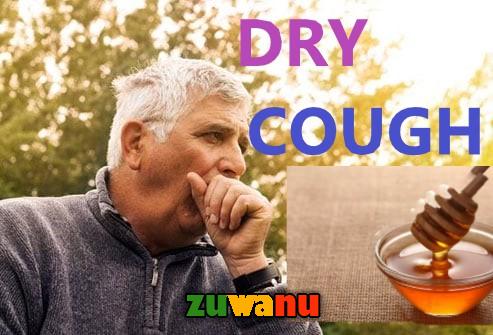Exploring the Use of Alternative Medicine in the Treatment of Dry Coughs in 2023

Introduction
Dry cough, also known as non-productive cough, is a type of cough that does not produce phlegm or mucus. It can be a symptom of various respiratory infections or allergies, and it can also be caused by environmental irritants or certain medications. While a dry cough may not be as severe as a wet cough, it can still be annoying and disrupt daily activities. In this article, we will discuss the treatment options for dry cough, the symptoms to look out for, the potential risks of alternative medicine, and the dangers of ignoring a persistent cough.
Medical Treatment
One of the most common treatments for a dry cough is over-the-counter (OTC) cough suppressants, such as dextromethorphan or guaifenesin. These medications work by reducing the activity of the coughing reflex, which helps to alleviate the symptoms. However, it is important to note that OTC cough suppressants should not be used for more than a week, as they may cause side effects and may not be effective in the long term.
If a dry cough is caused by an allergy, an antihistamine may be prescribed to reduce the allergic reaction. Antihistamines work by blocking the action of histamine, a chemical that is released by the body during an allergic reaction. Some common antihistamines include cetirizine, loratadine, and diphenhydramine.
Causes of dry cough.
In some cases, a dry cough may be caused by an underlying respiratory infection, such as the common cold or bronchitis. In these cases, a doctor may prescribe antibiotics if the infection is bacterial. It is important to note that antibiotics should only be taken if prescribed by a doctor, as overuse can lead to antibiotic resistance.
Home remedies.
Alternative medicine, such as herbal remedies and supplements, is often sought after as a natural treatment for a dry cough. While some of these remedies may provide some relief, it is important to be cautious as they may interact with other medications and may have potential risks. It is always best to consult with a healthcare professional before taking any alternative medicine.
Dangers
Ignoring a persistent dry cough can be dangerous, as it may be a symptom of a more serious condition such as pneumonia or asthma. It is important to see a doctor if a dry cough persists for more than a week or if it is accompanied by other symptoms such as fever, shortness of breath, or chest pain. A healthcare professional will be able to determine the cause of the cough and provide appropriate treatment.
In conclusion, a dry cough can be a nuisance, but it is important to seek treatment to alleviate the symptoms and address the underlying cause. OTC cough suppressants and antihistamines are common treatment options, but it is important to be cautious when using alternative medicine and to see a doctor if the cough persists or is accompanied by other symptoms. Ignoring a persistent dry cough can be dangerous, as it may be a sign of a more serious condition.
Dry Cough Treatment
There are several methods of treating a dry cough, including:
- Over-the-counter cough medications: These can include cough syrups, lozenges, and sprays that contain ingredients such as dextromethorphan or guaifenesin. These medications can help to suppress the cough reflex and provide relief.
- Home remedies: Many people find relief from a dry cough using home remedies such as drinking warm liquids, using humidifiers, and using honey or lemon to soothe the throat.
- Prescription medications: In some cases, a dry cough may require prescription medications such as inhaled steroids or bronchodilators to help open up the airways and reduce inflammation.
- Alternative therapies: Some people may choose to try alternative therapies such as acupuncture or herbal remedies to help alleviate a dry cough.
Symptoms of a Dry Cough
The most common symptoms of a dry cough include:
- A persistent, hacking cough that does not produce any phlegm or mucus
- Pain or discomfort in the chest or throat
- Difficulty sleeping due to the cough
- Hoarseness or a change in the voice
- Difficulty breathing or shortness of breath
OEM Your Capsules Healthcare Supplements PRIVATE Label
Alternative Medicine for Dry Cough
There are several alternative therapies that may be helpful in treating a dry cough, including:
- Acupuncture: This traditional Chinese medicine technique involves inserting thin needles into specific points on the body to help restore balance and alleviate symptoms.
- Herbal remedies: Some herbs, such as licorice root and slippery elm, may help to soothe the throat and reduce coughing.
- Aromatherapy: Essential oils, such as eucalyptus and peppermint, can be inhaled or used in a diffuser to help clear the airways and reduce coughing.
Dangers of a Dry Cough
While a dry cough is usually not a serious condition, it can sometimes be a sign of a more serious underlying issue such as asthma or pneumonia. If the cough persists for more than a few weeks or is accompanied by other symptoms such as fever, shortness of breath, or chest pain, it is important to see a healthcare provider for further evaluation.
Additionally, over-the-counter cough medications and alternative therapies may have side effects or interact with other medications, so it is important to speak with a healthcare provider before starting any new treatment.
Overall, a dry cough can be a bothersome and disruptive symptom, but it can often be effectively treated with a variety of methods including over-the-counter medications, home remedies, prescription medications, and alternative therapies. If the cough persists or is accompanied by other concerning symptoms, it is important to seek medical evaluation to determine the underlying cause and appropriate treatment.
It is important to properly diagnose the cause of a dry cough in order to determine the most effective treatment. Some common causes of a dry cough include allergies, colds and flu, dry air, and respiratory infections.
Allergies, such as hay fever or allergic asthma, can cause a dry cough due to irritation and inflammation of the airways. Treatments for allergies may include antihistamines, decongestants, and inhaled steroids.
Colds and flu can also cause a dry cough as the body’s immune system works to clear the virus from the respiratory system. Over-the-counter cough medications and home remedies such as warm liquids and humidifiers may help to alleviate symptoms.
Dry air can irritate the throat and cause coughing, particularly in the winter when indoor air is often dry. Using a humidifier or keeping a pot of water boiling on the stove can help to add moisture to the air and reduce coughing.
Respiratory infections, such as bronchitis or pneumonia, can also cause a dry cough. These infections may require prescription medications, such as antibiotics or inhaled steroids, to treat the underlying cause.
In some cases, a dry cough may be a sign of a more serious underlying condition such as asthma, chronic obstructive pulmonary disease (COPD), or lung cancer. It is important to see a healthcare provider if the cough persists for more than a few weeks or is accompanied by other concerning symptoms.
Alternative therapies, such as acupuncture and herbal remedies, may also be helpful in treating a dry cough. However, it is important to speak with a healthcare provider before starting any new treatment, as some alternative therapies may have side effects or interact with other medications.
While a dry cough can be bothersome and disruptive, it is usually not a serious condition and can be effectively treated with a variety of methods. It is important to properly diagnose the cause of the cough and seek medical evaluation if the cough persists or is accompanied by other concerning symptoms.

In addition to traditional treatments for a dry cough, there are also several lifestyle changes that can help to alleviate symptoms. Some tips for managing a dry cough include:
- Drink plenty of fluids: Staying hydrated can help to loosen mucus and soothe the throat, which can reduce coughing. Warm liquids, such as water, tea, and broth, may be particularly helpful.
- Use a humidifier: Dry air can irritate the throat and cause coughing, so using a humidifier can help to add moisture to the air and reduce coughing.
- Avoid irritants: Cigarette smoke, perfumes, and other strong odors can irritate the airways and worsen a dry cough. It is important to avoid exposure to these irritants as much as possible.
- Get plenty of rest: Coughing can be exhausting, so it is important to get plenty of rest to help the body recover and heal.
- Manage stress: Stress can worsen symptoms of a dry cough, so it is important to find healthy ways to manage stress, such as through relaxation techniques or exercise.
- Avoid triggers: For those with allergies or asthma, it is important to identify and avoid triggers that may worsen a dry cough, such as certain foods, pollutants, or allergens.
In addition to these lifestyle changes, it may also be helpful to speak with a healthcare provider about other ways to manage a dry cough. For example, a healthcare provider may recommend certain over-the-counter or prescription medications, or suggest trying alternative therapies such as acupuncture or herbal remedies.
Overall, a dry cough can be a frustrating and disruptive symptom, but it is usually not a serious condition and can be effectively managed with a combination of traditional treatments and lifestyle changes. It is important to seek medical evaluation if the cough persists or is accompanied by other concerning symptoms.
While a dry cough is usually not a serious condition, it can sometimes be a sign of a more serious underlying issue such as asthma or pneumonia. It is important to seek medical evaluation if the cough persists for more than a few weeks or is accompanied by other concerning symptoms such as fever, shortness of breath, or chest pain.
Asthma is a chronic respiratory condition that can cause a dry cough due to inflammation and narrowing of the airways. Asthma can be triggered by a variety of factors such as allergens, pollution, exercise, or stress. Treatment for asthma may include inhaled medications such as steroids and bronchodilators, as well as allergy and trigger management.
Pneumonia is an infection of the lungs that can cause a dry cough, fever, shortness of breath, and chest pain. Pneumonia can be caused by bacteria, viruses, or other infectious agents. Treatment for pneumonia may include antibiotics, oxygen therapy, and supportive care.
It is important to seek medical evaluation if a dry cough is accompanied by these concerning symptoms as timely treatment can help to prevent complications and ensure a full recovery.
Additionally, it is important to speak with a healthcare provider before starting any new treatment for a dry cough, including over-the-counter medications and alternative therapies. Some treatments may have side effects or interact with other medications, so it is important to fully understand the potential risks and benefits before starting any new treatment.
Overall, while a dry cough is usually not a serious condition, it is important to seek medical evaluation if the cough persists or is accompanied by other concerning symptoms. Proper diagnosis and treatment can help to alleviate symptoms and prevent complications.
CHAT FRIENDS ON ANYTHINGNAIJA CHAT
